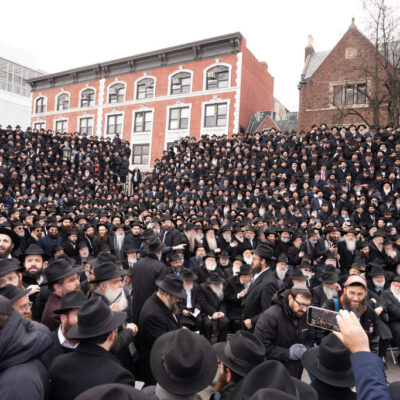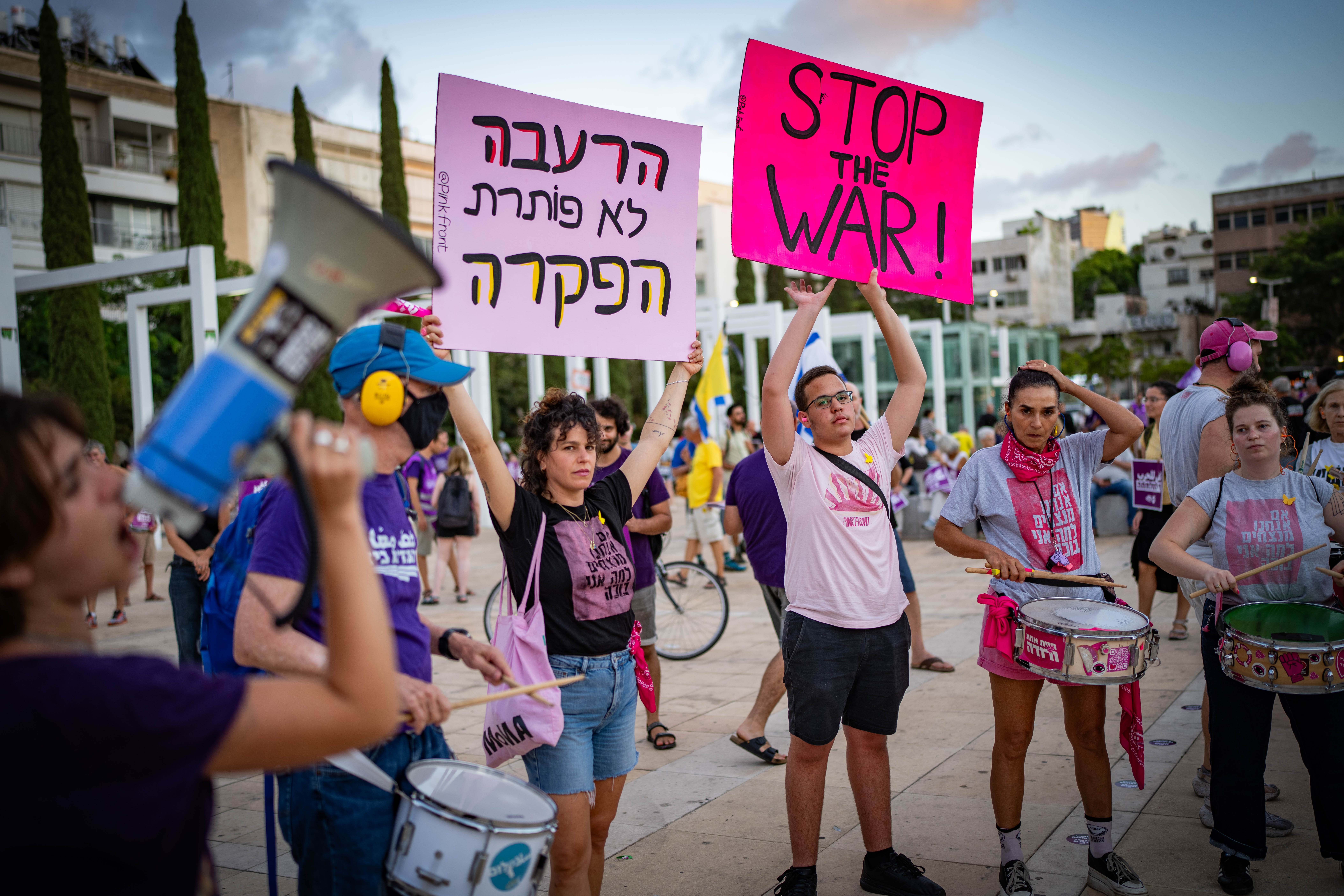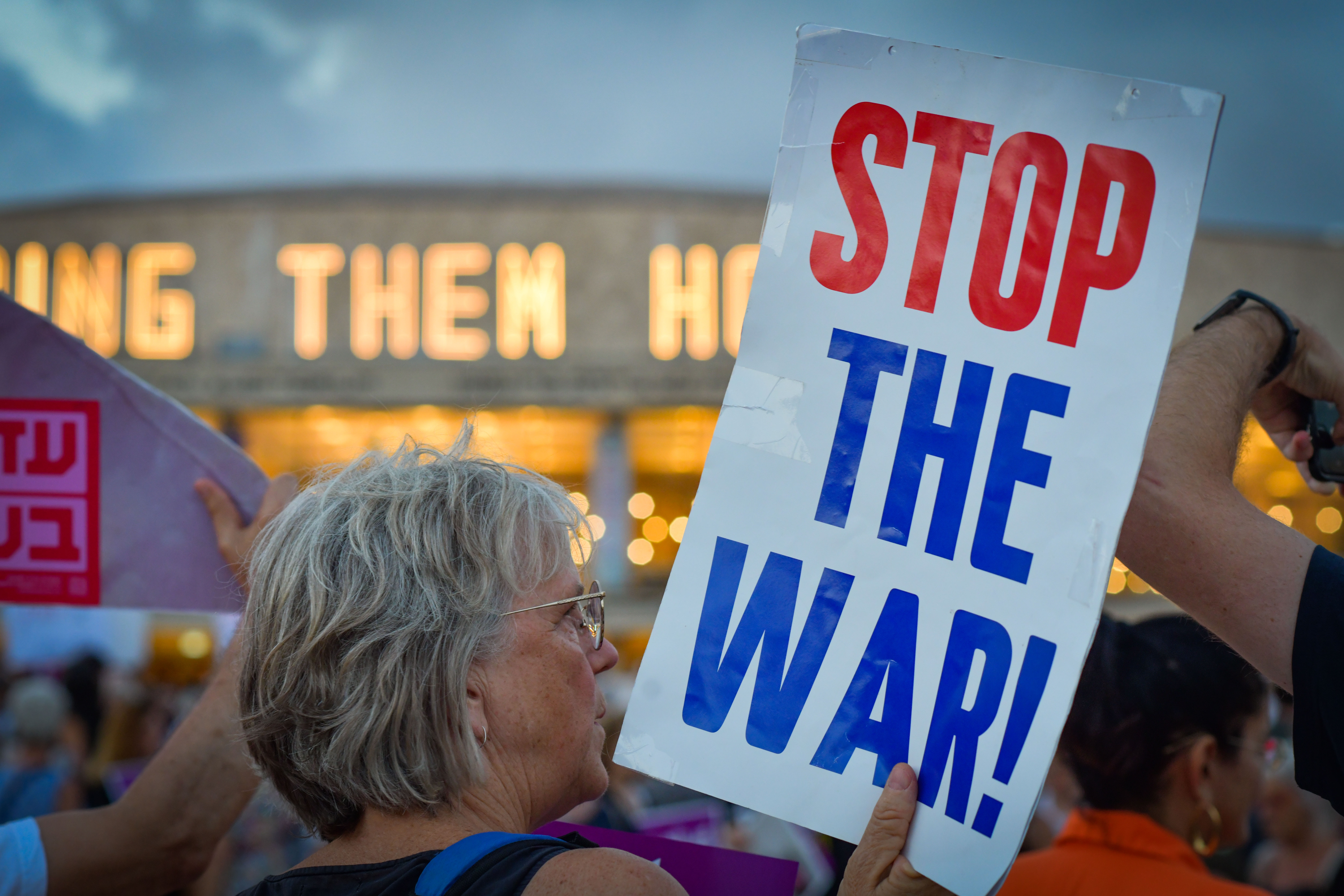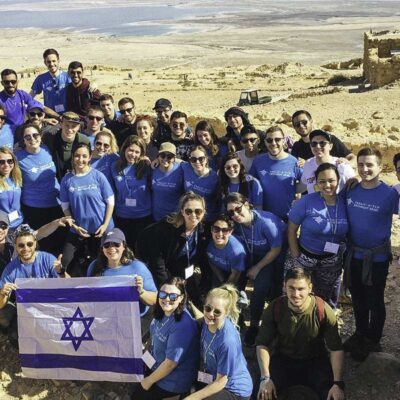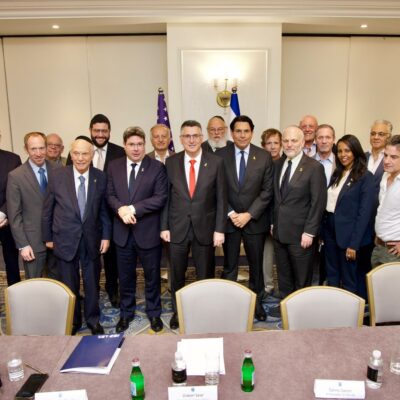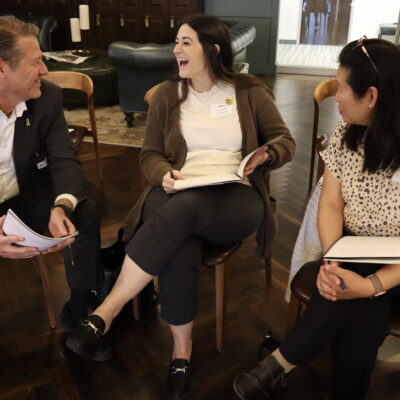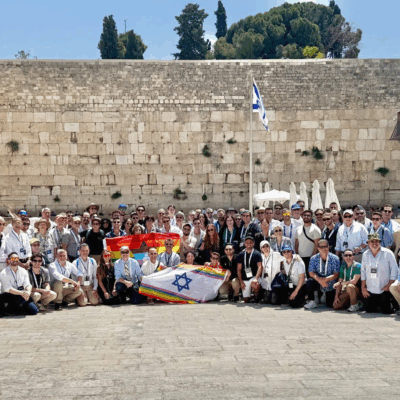CLIMBING THE CHARTS
Maimonides Fund investment bears fruit as Israeli Olympiad teams crack top 10 in math, chemistry
When it first started training the Israeli math and science teams, the Future Scientists Center set the 'fantastic' goal of becoming some of the world's best — last month it proved it could do it
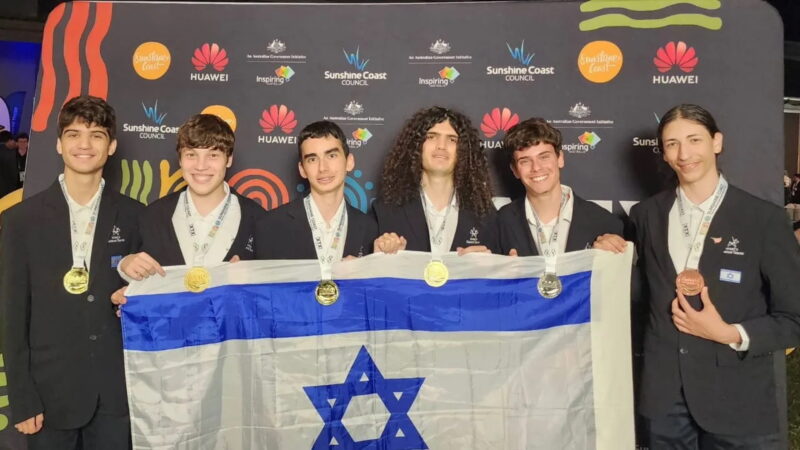
courtesy/Israeli Education Ministry and Future Scientists Center
Members of the Israeli team in the International Mathematics Olympiad hold the Israeli flag after placing sixth in the competition last month in Australia
Like many Olympic athletes, the best and brightest students in math and chemistry who make up Israel’s team at the International Olympiad started training early, many of them in middle school, poring over complex pre-calculus problems and honing their lab skills. They were practicing intensely for a goal that at the time seemed far off.
Eli Fried, director general of Maimonides Fund’s Future Scientists Center, which has sought to train such students more rigorously, knew that his initial goal was a lofty one: placing among the top 10 teams globally out of more than 100 countries in the disciplines of mathematics, chemistry, biology, physics and computer science. “That was all a bit of a fantasy a number of years ago,” Fried admitted. “We weren’t sure how practical that was as a target.”
Now, six years after the Future Scientists Center joined the Education Ministry in the training efforts, Israel’s math and chemistry teams, for the first time, cracked the global top 10 at the 2025 International Olympiad competition, which was held in Australia last month. With a sixth-place finish, the mathematics team won six medals: four gold, one silver and one bronze. The chemistry team finished in 10th place, taking home two golds and two silvers.
Until the arrival of the Future Scientists Center, which now fully funds and oversees the teams’ preparation, the Education Ministry had been the sole funder of the International Olympiad training, but the more limited governmental support meant that parents and students often had to cover the costs of the competition, professors volunteered their time and students were trained with insufficient materials.
The Future Scientists Center has professionalized the Olympiad training process, bringing structure, consistency and a data-driven strategy. Until the center’s arrival, the program hadn’t been “learning over time from what worked and what didn’t work… which students succeeded and which students didn’t succeed,” Fried said.
The program’s goal extends beyond the individual achievements of the teams but looks to develop the country’s future scientific leaders, who go on to serve in elite military intelligence units, attend top universities and produce academic research earlier in their careers than peers. According to Fried, “the overall approach of the Olympiad program is no different to our other programs in the sense that at the end of the day, it’s an educational program… They’re there for the education. They’re there to be significantly challenged, academically challenged, and to basically take their first step into the Israeli academy, into the army and into Israeli industry. And that’s really what our overall objective is — to strengthen Israel in those fields.”
Out of 2,500 students involved each year in the Future Scientists Center programs through the different tracks of mathematics, chemistry, biology, physics and computer science, the Olympiad identifies the most gifted. “And what we know, or what we at least believe, is that the highly gifted and the talented are a population, which if you allow them to achieve everything that they can possibly achieve, then the proportional return of each and every one of those individuals is off the scale.”
Where the teams once relied on one standout “star student,” the current success stems from long-term investment and team cohesion. Junior teams, which begin training in middle school, now feed directly into the senior teams that compete at the international level. “In the last two years, all of the medalists started out on the junior team and are now competing in 11th and 12th grade, which has proven a shift from the previous strategy of relying on a star student to carry the team.”
The center has had high ambitions from the start. According to Fried, they initially set what seemed like a lofty goal: placing among the top 10 teams globally in each discipline. “That was all a bit of a fantasy a number of years ago,” Fried admitted. “We weren’t sure how practical that was as a target.”
Still, the goal became increasingly attainable over time. “All of our teams are now very, very solidly in what I’d call the second tier, between 10th and 20th place, and in recent years, we’ve been moving into the top 10, which is our target,” he said. This year marked a breakthrough: the Israeli math team placed sixth worldwide, its highest rank ever, out of 110 countries, while the chemistry team reached 10th, a major leap from their initial 50th place when the program began. “We’re moving in that direction,” Fried said. “And we think it’s important to set that as a real target.”
While the Olympiad program focuses on academic excellence, the center is also piloting booster programs in middle schools to encourage underrepresented populations, specifically Arab students and female students, to pursue advanced science studies. These initiatives aim to widen the pipeline of talent while maintaining the program’s rigorous standards.
In addition to training for the Olympiad, the center also supports the “best of the best” students with scholarships to pursue STEM degrees at Israel’s top universities, reinforcing a national strategy to invest in human capital. “There are different educational opportunities for different kinds of gifted students,” Fried said. “And we believe that if they succeed, then Israel will end up better for their success.”
Beyond the scope of the training program, the future of science in Israel is looking bright, according to the president of Ben-Gurion University of the Negev, Danny Chamovitz, who believes that the accomplishments of Israel’s Olympiad teams “illustrate the tremendous potential within Israel’s younger generation. A country that aspires to secure its economic, security, and social future must invest consistently and deeply in nurturing scientists and engineers from a young age.”
At the same time, Israeli academia remains concerned over the emigration of Israeli scientists to the wider high-tech world. The Israel Academy of Sciences and Humanities has commented on this “brain drain” and reported that “the academic system in Israel faces challenges in recruiting faculty members and graduate students in the exact sciences and retaining existing ones due to competition with the high-tech industry. To address this issue, the academic system should seek creative solutions that do not depend solely on improving wage conditions.”

